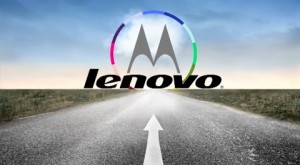M&A
Mindray Medical International Limited: Going Global from China
Mindray Medical International Limited was the second largest medical device manufacturer in China with global sales of 2.23 billion RMB in 2007. Since 2002, Mindray had launched between seven and nine new products every year across four product lines: Patient Monitoring & Life Support products, the In-Vitro Diagnostic Products, Medical Imaging Systems and Veterinary. In 2006, Mindray’s American depositary shares (ADS) were listed on the New York Stock Exchange. By the end of 2007, Mindray had sold medical devices to over 37,500 hospitals and clinics in China. It had 12 international offices and its products were sold in more than 140 countries.
However, the company’s US performance had not lived up to expectation and, recently, Mindray founder and chairman Hang Xu had been approached by a leading investment bank to discuss the potential acquisition of Datascope, a mid-sized American producer of medical devices for the global marketplace. What should Xu do?
Does the market’s response to Lenovo’s acquisition of Motorola make sense?
Lenovo’s acquisition of Motorola from Google for $2.9 billion seems to have gone down badly among investors, with Lenovo stocks losing over 16% of their value since the announcement. The press suggests that the deal was not good for Lenovo because Google retained the majority of the patents that had been owned by Motorola. What’s not clear to me is why is the fact that Lenovo did not get the patents a concern for Lenovo?

Looking at pure numbers, Google paid $12.5 billion to acquire Motorola and it has been reported that the patents owned by Motorola are valued at around $5 billion. Additionally, for its acquisition price, Google gained access to $3 billion in cash that was with Motorola, and was able to sell Motorola’s set-top box business for another $2.35 billion. Google also has absorbed roughly $2 billion in losses since the acquisition, again according to reports. Given these number, it does not seem unreasonable for Lenovo to have paid $2.9 billion for Motorola, an acquisition which could prove transformative for Lenovo in the long run. Why do I think this?
Lenovo’s current business is dominated by PCs. Lenovo is the #1 player in this business, but being #1 in a shrinking category is cold comfort. Lenovo is the #4 smartphone player in the world, a position driven primarily by its #2 position in China, a market where growth is slowing, which is likely to force Lenovo to look overseas for growth. The Lenovo brand is just beginning to establish itself in the US and other developed markets, and it is hardly ready for an extension in to smartphones in most markets outside China.
The Motorola brand could be just the thing Lenovo needed to rapidly catapult itself in to the global smartphone business. First, in the US and around the world, the Motorola brand has presence in consumers’ minds a presence that is not only the result of Motorola’s pioneering efforts in the mobile phone industry but also due to its access to consumers through its numerous links with the carriers. For Lenovo, the sheer ubiquity of the Motorola brand both in terms of access and in consumers’ minds is very significant. Without the acquisition, it would have taken Lenovo years and vast sums of money to create the presence that Motorola offers instantly.
Second, the Motorola brand has relevance. Motorola is relevant in the mobile phone category, where it has had a long presence, making it both credible and trusted by consumers. Lenovo on the other hand has no relevance in the mobile phone or smartphone category outside of China, as it currently sells its smartphones primarily in China, with a small presence in a few other countries. As such, the Motorola brand gives Lenovo the opportunity to leap in to this category worldwide, instantly and with credibility.
Finally, Motorola is a storied brand with a history dating back to 1928. Thus, the brand provides an opportunity for Lenovo to differentiate itself in a highly competitive category. This differentiation is not only in comparison with the myriad of Chinese smartphone players that are flooding in to the market, but also in comparison to globally dominant players like Samsung and Apple. Whether Lenovo will be successfully able to leverage the Motorola brand’s heritage remains to be seen. But, given how adroitly Lenovo leveraged the ThinkPad brand it acquired from IBM a decade ago, there is no reason to count Lenovo out in this regard. Indeed, the markets were equally pessimistic when other EMNCs acquired storied MNCs like Motorola–e.g., Jaguar and Land Rover by Tata Motors in 2008, but the markets were wrong!
Only time will tell if the Motorola acquisition will be a game changer for Lenovo, but I am much more optimistic than either the market or the many pundits who have expressed concerns!

